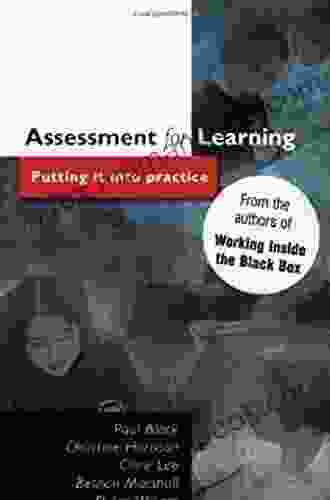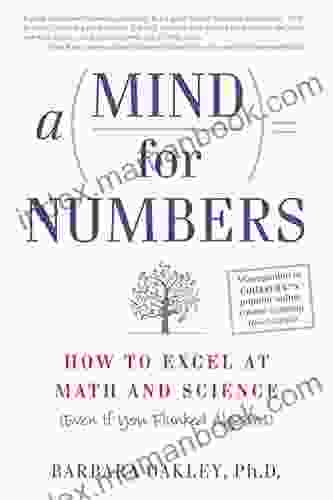Exploring the Mind for Numbers: A Journey into the Realm of Numerical Cognition

Numbers are an integral part of our lives. We use them to measure, count, calculate, and navigate our world. But how do we understand numbers? How do we perform mathematical operations? And how do we apply numbers to solve problems? These questions lie at the heart of numerical cognition, the study of how the human mind processes and understands numerical information.
In this article, we will explore the fascinating world of mind for numbers. We will delve into the cognitive processes that underpin our understanding of numerical concepts, operations, and their applications in everyday life. We will discover the latest research and insights into the development, structure, and functions of number sense, calculation skills, and mathematical reasoning.
4.6 out of 5
| Language | : | English |
| File size | : | 12942 KB |
| Text-to-Speech | : | Enabled |
| Screen Reader | : | Supported |
| Enhanced typesetting | : | Enabled |
| X-Ray | : | Enabled |
| Word Wise | : | Enabled |
| Print length | : | 332 pages |
Number Sense
Number sense refers to our intuitive understanding of numbers and their relationships. It includes our ability to recognize, compare, order, and estimate numbers, as well as our understanding of the number line and the relative magnitudes of numbers.
Number sense is a foundational skill for mathematical development. It is essential for developing calculation skills, mathematical reasoning, and problem-solving abilities. Research has shown that children with strong number sense perform better in mathematics throughout their schooling.
Calculation Skills
Calculation skills refer to our ability to perform arithmetic operations, such as addition, subtraction, multiplication, and division. These skills are essential for solving mathematical problems and applying mathematics to real-world situations.
Calculation skills are developed through practice and instruction. Children typically learn basic calculation skills in elementary school, and they continue to develop these skills throughout their schooling and into adulthood.
Mathematical Reasoning
Mathematical reasoning refers to our ability to use logical thinking to solve mathematical problems. This includes our ability to understand mathematical concepts, make inferences, and draw s. Mathematical reasoning is essential for high-level mathematical thinking and problem-solving.
Mathematical reasoning is developed through education and experience. Children begin to develop mathematical reasoning skills in elementary school, and they continue to develop these skills throughout their schooling and into adulthood.
The Mind for Numbers in Everyday Life
The mind for numbers is essential for success in everyday life. We use numerical cognition to make decisions, solve problems, and navigate our world. For example, we use number sense to estimate quantities, compare prices, and make change. We use calculation skills to calculate discounts, pay bills, and manage our finances. And we use mathematical reasoning to solve problems, make decisions, and understand the world around us.
The mind for numbers is a powerful tool that we use every day. By understanding the cognitive processes that underpin numerical cognition, we can improve our mathematical abilities and use them to reach our full potential.
The mind for numbers is a fascinating and complex system that allows us to understand and interact with the world around us. By understanding the cognitive processes that underpin numerical cognition, we can improve our mathematical abilities and use them to reach our full potential.
References
- Geary, D. C. (2011). Cognitive foundations of numerical reasoning. Current Directions in Psychological Science, 20(3),173-177.
- Iuculano, T., & Butterworth, B. (2011). Understanding numbers: A multimodal approach to numerical cognition. Oxford University Press.
- Jordan, N. C., Kaplan, D., Ramineni, C., & Hansen, N. (2007). Number sense growth in kindergarten: A longitudinal investigation of children at risk for mathematics difficulties. Child Development, 78(1),160-170.
- Levine, S. C., Jordan, N. C., & Huttenlocher, J. (1992). Calculation skills: A longitudinal study of early precursors. Monographs of the Society for Research in Child Development, 57(1),1-114.
- Siegler, R. S., & Booth, J. L. (2004). Development of numerical estimation in young children. Psychological Science, 15(1),228-234.
4.6 out of 5
| Language | : | English |
| File size | : | 12942 KB |
| Text-to-Speech | : | Enabled |
| Screen Reader | : | Supported |
| Enhanced typesetting | : | Enabled |
| X-Ray | : | Enabled |
| Word Wise | : | Enabled |
| Print length | : | 332 pages |
Do you want to contribute by writing guest posts on this blog?
Please contact us and send us a resume of previous articles that you have written.
 Top Book
Top Book Novel
Novel Fiction
Fiction Nonfiction
Nonfiction Literature
Literature Paperback
Paperback Hardcover
Hardcover E-book
E-book Audiobook
Audiobook Bestseller
Bestseller Classic
Classic Mystery
Mystery Thriller
Thriller Romance
Romance Fantasy
Fantasy Science Fiction
Science Fiction Biography
Biography Memoir
Memoir Autobiography
Autobiography Poetry
Poetry Drama
Drama Historical Fiction
Historical Fiction Self-help
Self-help Young Adult
Young Adult Childrens Books
Childrens Books Graphic Novel
Graphic Novel Anthology
Anthology Series
Series Encyclopedia
Encyclopedia Reference
Reference Guidebook
Guidebook Textbook
Textbook Workbook
Workbook Journal
Journal Diary
Diary Manuscript
Manuscript Folio
Folio Pulp Fiction
Pulp Fiction Short Stories
Short Stories Fairy Tales
Fairy Tales Fables
Fables Mythology
Mythology Philosophy
Philosophy Religion
Religion Spirituality
Spirituality Essays
Essays Critique
Critique Commentary
Commentary Glossary
Glossary Bibliography
Bibliography Index
Index Table of Contents
Table of Contents Preface
Preface Introduction
Introduction Foreword
Foreword Afterword
Afterword Appendices
Appendices Annotations
Annotations Footnotes
Footnotes Epilogue
Epilogue Prologue
Prologue Barbara Bair
Barbara Bair Tembi Locke
Tembi Locke Rebekah Black
Rebekah Black Kenneth J Fasching Varner
Kenneth J Fasching Varner Jonathan Eckert
Jonathan Eckert Juliet Gauvin
Juliet Gauvin David Page
David Page Benjamin Law
Benjamin Law Fernando Valverde
Fernando Valverde Ann Cleeves
Ann Cleeves Jeff Strand
Jeff Strand Preethi Venugopala
Preethi Venugopala William N Walker
William N Walker Janet Dawson
Janet Dawson Garry O Connor
Garry O Connor Nicole Sletten
Nicole Sletten Ja Andrews
Ja Andrews Aaron Allston
Aaron Allston Jane Bluestein
Jane Bluestein Dev Sharma
Dev Sharma
Light bulbAdvertise smarter! Our strategic ad space ensures maximum exposure. Reserve your spot today!
 Nick TurnerFollow ·4.5k
Nick TurnerFollow ·4.5k Fernando BellFollow ·10.2k
Fernando BellFollow ·10.2k Elmer PowellFollow ·13.1k
Elmer PowellFollow ·13.1k Dakota PowellFollow ·12.3k
Dakota PowellFollow ·12.3k Davion PowellFollow ·16.3k
Davion PowellFollow ·16.3k Adrien BlairFollow ·12.3k
Adrien BlairFollow ·12.3k Don ColemanFollow ·16.2k
Don ColemanFollow ·16.2k Eugene ScottFollow ·13.5k
Eugene ScottFollow ·13.5k

 Dwight Bell
Dwight BellSlightly Higher Interval Training For 5k Runners: A...
Interval training has become an...

 Jordan Blair
Jordan BlairLazarillo de Tormes and the Swindler: A Tale of Deception...
The story of Lazarillo de...

 Grayson Bell
Grayson BellDelphi Complete Works Of James Thomson Illustrated Delphi...
: Unveiling the...

 Cooper Bell
Cooper BellAssessment For Learning (UK Higher Education OUP...
Assessment plays a crucial role in higher...

 Luke Blair
Luke BlairThis Is How Knew: A Comprehensive Guide to Unlocking Your...
Have you ever wondered if...

 Forrest Blair
Forrest BlairExploring the Kingdom of the Blind: A Deep Dive into an...
The Kingdom of the...
4.6 out of 5
| Language | : | English |
| File size | : | 12942 KB |
| Text-to-Speech | : | Enabled |
| Screen Reader | : | Supported |
| Enhanced typesetting | : | Enabled |
| X-Ray | : | Enabled |
| Word Wise | : | Enabled |
| Print length | : | 332 pages |












